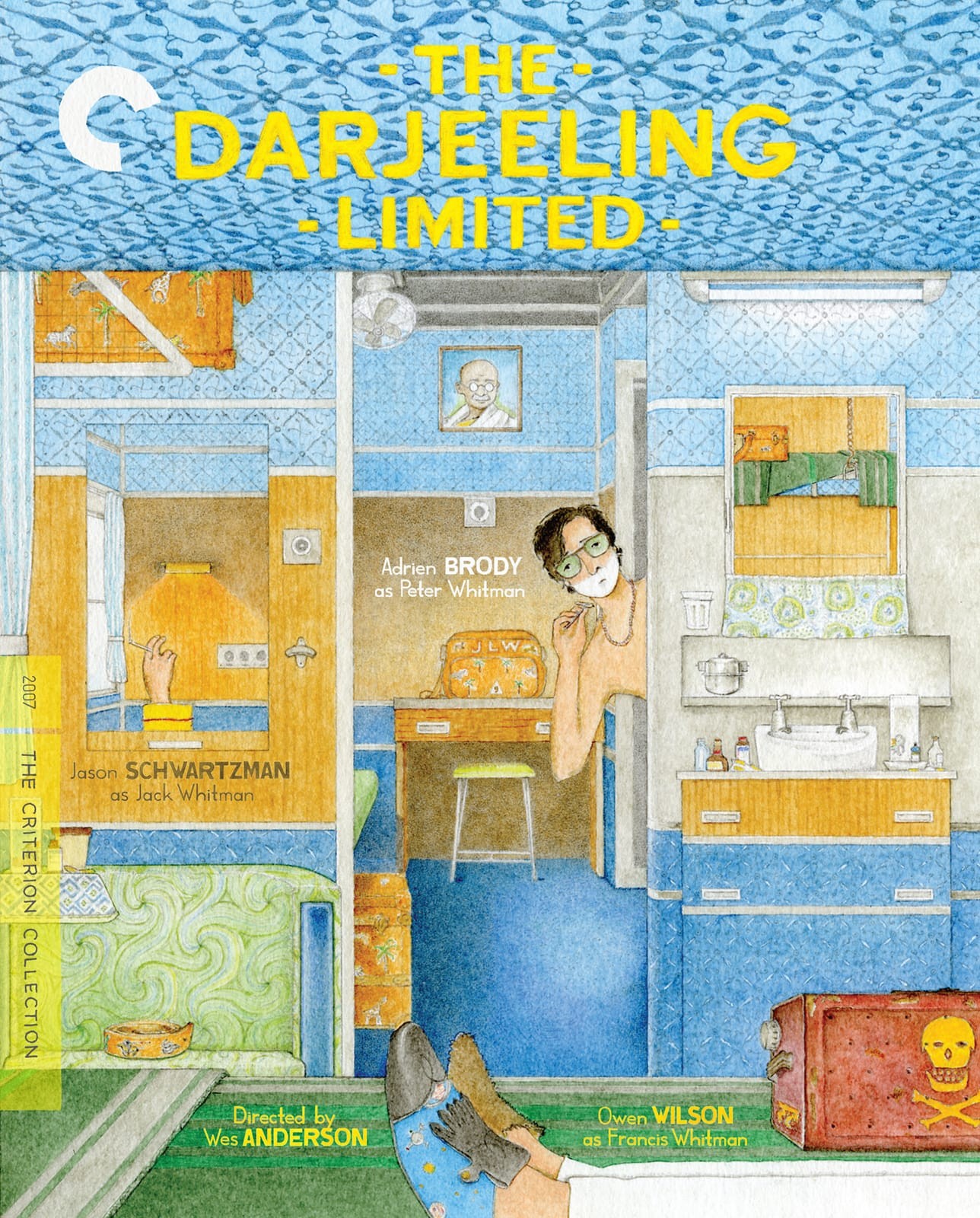
17 Oct The Wes Anderson Collecion: The Darjeeling Limited
THE DARJEELING LIMITED
dir. Wes Anderson, starring Owen Wilson, Adrien Brody, Jason Schwartzman
The Darjeeling Limited, the fifth outing from director Wes Anderson, covers a trio of estranged brothers on a spiritual train ride through India after their father’s death. The brother’s journey (both physical and metaphorical), the shenanigans that abound (both whimsical and serious) and the reveals throughout are the stuff of vintage Wes Anderson. Francis, Peter, and Jack use the journey throughout India to not only discover more about each other but also about themselves and how they respond to being immersed in a foreign culture. Family drama, Anderson’s favorite topic, is on full display here, with various alliances made and broken between the trio as the trip descends further into frustration and agitation. As is the case with most Wes Anderson movies, the stories don’t generally end on a happy note, but a hopeful one. This is the case with The Darjeeling Limited, showing the brothers shed their very literal (and far too on the nose figurative) baggage in order to catch their train, having the film come full circle to its beginning.
Acting in a Wes Anderson movie is rarely (if ever) the highlight of the film. For me, the whimsical story, the offbeat characters, and the directing acumen of Anderson are the main draw. The actors and actresses therein are the vessels through which these stories are told and for the most part they do their jobs competently. Here in The Darjeeling Limited, the same holds true as Owen Wilson, Adrien Brody, and Jason Schwartzman are front and center of a dysfunctional family unit, the main backbone of a number of Anderson’s work. The three are serviceable in the film, with Wilson’s usual exuberance in the lead, a contrast to the apathetic Brody and the skittish Schwartzman. The three play off each other well, at times a cohesive unit and at others nothing but a ball of bickering. Unfortunately, due to the traits of each character (Francis’ domineering nature, Peter’s ambivalence about having a child, and Jack’s eager willingness to cheat on his girlfriend due to their crumbling relationship), none of them are close to being likeable. In fact, the only relatable character in the film is the train’s chief steward, played by Waris Ahluwalia. His clear disdain for the trio shines through as he suffers their shenanigans to his breaking point. Angelica Huston as the boy’s mom for a pair of scenes and Amara Karan as a passing fling for Jack show that the women in the film hardly qualify as anything other tertiary characters, afterthoughts. Irrfan Khan, a character with exactly zero lines, has almost as much screen time as them.
Technically, The Darjeeling Limited is some of Wes Anderson’s better work; specifically the blocking in the early train sequences is masterful work managing to squeeze in the three principal characters into the tightest of spaces while also boxing them into the frame. Perfectly centered whip pans and events happening just outside the audience’s view continue to be the defining style that Anderson has almost singlehandedly cornered the market on. The narrative pacing is well crafted, with the hint of the story that Schwartzman’s character Jack is writing coming at just the right time in the film.
Overall, my theory going into The Darjeeling Limited of it not being a worthwhile film proved to be true, at least for me. At only 91 minutes, the movie still drags and feels far too long for what had the potential to be a great journey of family discovery. Unrelatable characters, a lack of any sort of actual comedy, along with the exploitation of a brown people’s culture to benefit and uplift the central white characters makes this easily the worst movie to come out of Wes Anderson’s filmography thus far. Luckily (or perhaps thankfully), Anderson would bounce back with The Fantastic Fox, placing the director back in the path of success. For now, I’ll consider The Darjeeling Limited an outlier as far as subpar material in the Anderson oeuvre.
Review by Darryl Mansel


No Comments